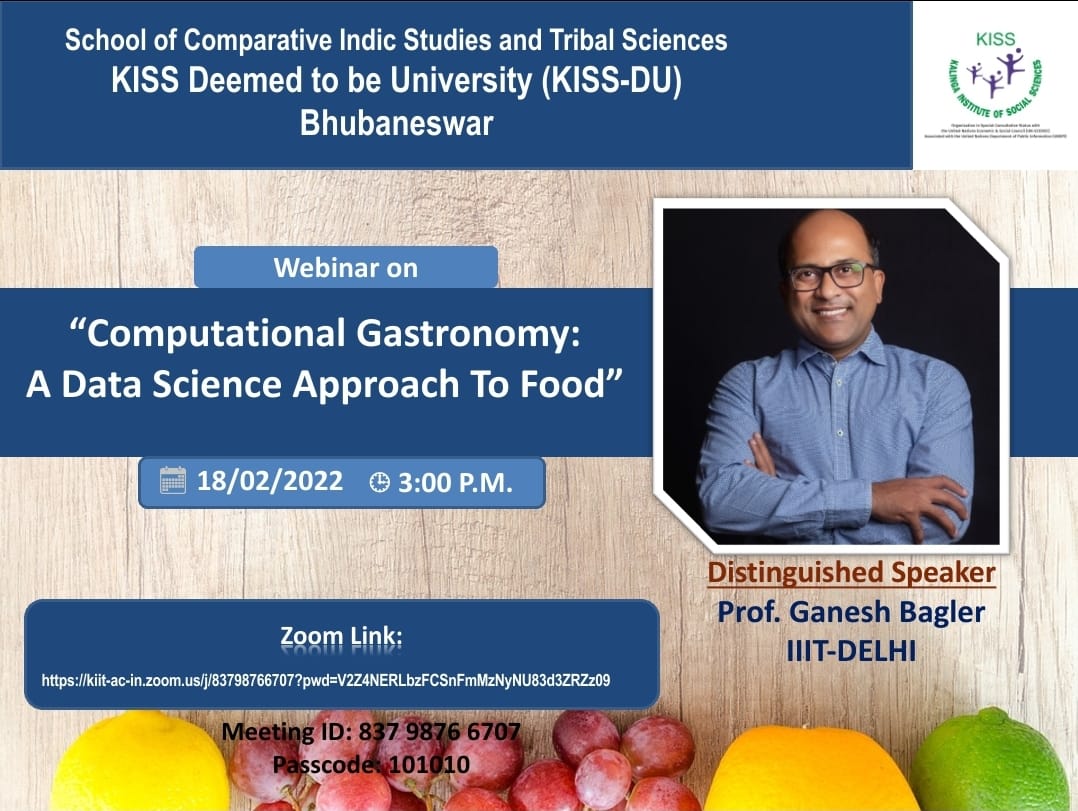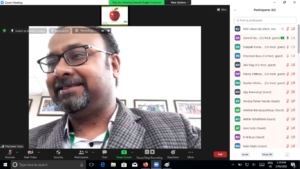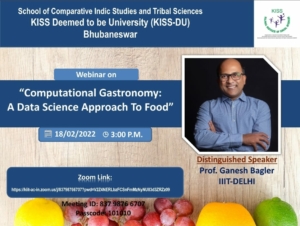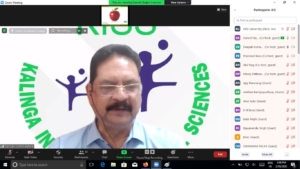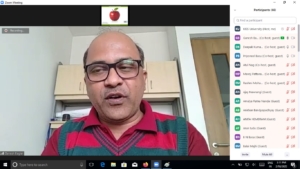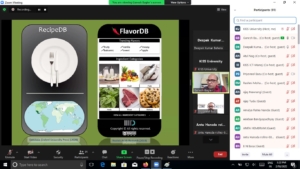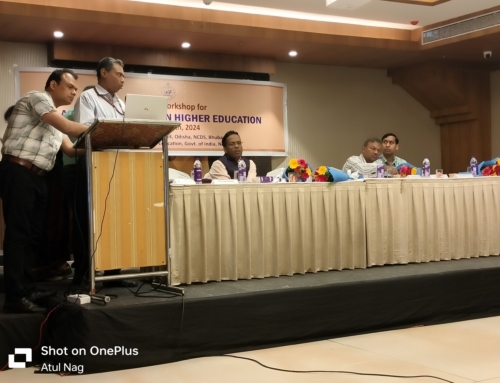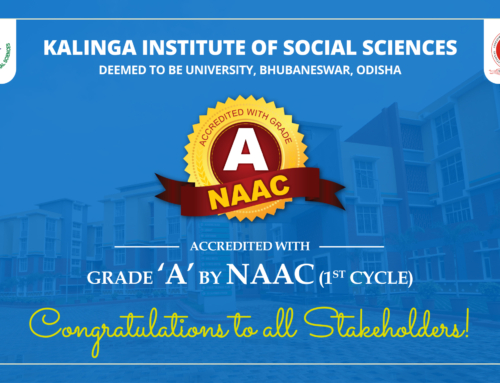The Zoology Programme under the School of Comparative Indic Studies and Tribal Sciences organized a webinar on ‘Computational Gastronomy: A Data Science approach to Food’ on the 18th February 2022. The programme was attended by more than a hundred participants from KISS-DU and other universities across India. Professor Ganesh Bagler from Indraprastha Institute of Information Technology, Delhi delivered the lecture as Distinguished Speaker.
Professor Deepak Kumar Behera, Hon’ble Vice-Chancellor, KISS-DU, delivered the Welcome Address and informed the august audience that since Odisha has 62 tribes and 13 Particularly Vulnerable Tribal Groups (PVTGs), interdisciplinary research that helps understand tribal resources, particularly with regard to food, is of much importance. He also extended an invitation to ProfessorBagler to visit KISS-DU and witness the ecosystem to enable and strengthen future collaborations. He appreciated the initiatives of the organizing members for their efforts to connect ProfessorBagler with the students and faculty members at KISS-DU.
Dr Priyoneel Basu, Associate Professor, School of Comparative India Studies and Tribal Sciences, KISS-DU introduced the speaker as an eminent interdisciplinary researcher with a career spanning Physics, Biology and Computational Biology; across prestigious institutions such as the Centre for Cell and Molecular Biology, National Centre for BiologicalSciences, Max Planck Institute for Molecular Genetics, IIT Jodhpur, and other CSIR labs. The speaker’s contributions to an innovative new niche in complex systems analysis were briefly explained to the audience.
In his address, Professor Ganesh Bagler described his interdisciplinary work as a journey from Astronomy to Computational Gastronomy. He introduced the novel field of Computational Gastronomy as a science that blends food with data-driven food innovations. He presented cookbooks as cultural capsules and cooking as a unique human trait that may have contributed to increased cranial capacity in humans. Professor Bagler described his computational work with food, in the first stage of which, exhaustive databases of recipes, flavours and ingredients were created, using 2543 digitally available recipes as a starting point, and mapping each ingredient and flavour to a particular category, thus creating online tools and apps that could be used to generate, and predict the taste of, novel recipes using a set of ingredients. He then introduced the audience to the concept of food pairing, and how Indian recipes were unique in using contrasting food pairs. He stressed that spices were the molecular fulcrum of Indian cuisine, and the unique signature of each dish could be computed to generate regional culinary fingerprints. He said that there was scope for building a rich repository of tribal recipes, as this area has not been explored at all. Professor Bagler illustrated how his team collected 100000 recipes from across the world and used them to compute a culinary similarity tree. He also submitted that as per the maxim of the fictional Chef Gusteau from the famous movie Ratatouille, “Anyone can cook, even computers”. He then described the Ratatouille tool that he has developed, which is a novel recipe generation app. He generously shared links to all his apps and databases with the audience. He also described SpiceRX, an app that functioned as an integrative repository for 2200 ingredients and diseases associated with those ingredients. This app could be used for personal nutrition predicting, food-beverage pairing, dietary interventions, food and beverage design, and sustainable food innovations, with the ultimate goal of feeding 10 billion people by 2050. He underscored the importance of tribal food and tribal cuisine in contributing to the food requirements of the world and expressed a willingness to collaborate with KISS-DU in the future. ProfessorBagler also answered all questions in a lively interactive session. Dr Rashmi Mohapatra, Dean, of the School suggested a joint effort to build a structured compendium of tribal recipes, which was supported by the speaker.
Mr. MahataSathapathy, Head, ZoologyProgramme, School of Comparative Indic Studies and Tribal Sciences, offered a formal Vote of Thanks.

